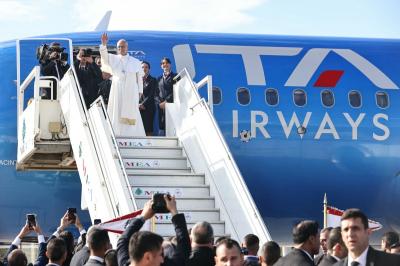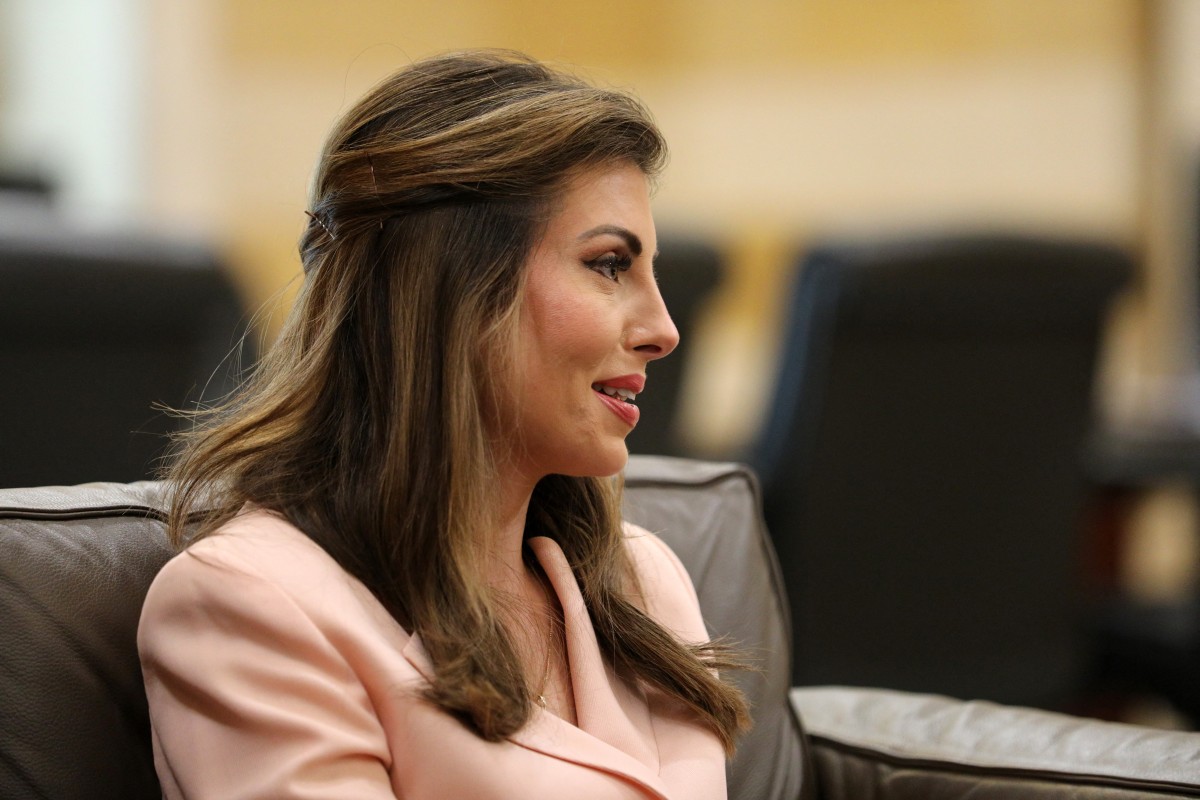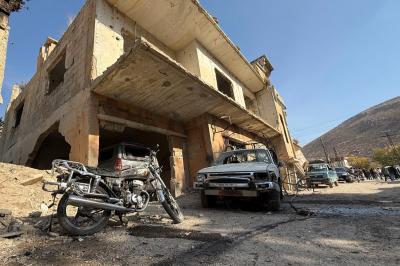Insiders familiar with the U.S. position are painting a rather bleak picture of Lebanon’s and the region’s future in light of the foreign policy pursued by President Donald Trump's administration and the global reactions it continues to stir.
In Lebanon’s case, the situation appears particularly lopsided. Israel, it seems, has all the time it needs, while Lebanon is running out of both time and options. And no one should be under any illusion that the international community will pressure Israel to withdraw from occupied Lebanese territories. The Israeli state continues its operations in both Lebanon and Syria, while Washington’s attention remains narrowly focused on regions that promise economic gain, steering clear of areas it views as financial burdens.
This strategy underpins Trump’s first overseas tour since taking office, with visits planned to Saudi Arabia, Qatar, the UAE, possibly Bahrain, and Kuwait. These nations are key to Washington’s current calculus, especially now that the U.S. has taken control over most global energy supplies following the cutoff of Russian gas to Europe. The U.S. now exports gas to Europe through multiple sources—most notably Algeria (via American firms), NATO-member Norway (which remains outside the EU), and Azerbaijan. With this diversification, Europe has grown dependent on U.S.-linked gas supplies—marking a major shift from the ideological Cold War rivalry between the U.S. and the former Soviet Union.
As for the rest of the world, Trump sees only “losses upon losses.” He has no interest in intervening in or relying on regions deemed unprofitable. A telling example is his own administration's direct negotiations with the Taliban in Qatar during his first term, which paved the way for America’s exit from Afghanistan. Even if ISIS were to seize Iraq again, U.S. forces would not intervene. Syria too has been effectively left to Turkey and Israel—although expectations are rising that Turkey will eventually realize its intervention may not be as beneficial as once believed.
Trump’s focus is on the Gulf first and foremost, followed by Egypt and Jordan—countries bound by peace treaties with Israel (Camp David and Wadi Araba, respectively). Although U.S.-Saudi ties had grown cautious in recent years, they are now enjoying a noticeable upswing, alongside strengthened U.S. relations with the UAE and Qatar (home to the al-Udeid Air Base), Bahrain (where the U.S. Fifth Fleet is based), and Kuwait (host to America’s largest ground base in the region).
Nevertheless, Egypt and Jordan are growing increasingly anxious, sensing they are no longer a priority for Washington—much like Lebanon, where U.S. aid has been cut across various sectors, from the American University of Beirut to the René Moawad Foundation, except military assistance to the Lebanese Army. Lebanon now feels sidelined. Washington has also imposed 25% tariffs on its European allies, and suspended funding for UNICEF, UNDP, and UNRWA, while neither China nor Russia has shown any desire to fill the resulting vacuum.
Lebanon today finds itself in a Syria-like scenario. Recent Israeli strikes on Beirut’s southern suburbs mirror those on Damascus’s Mazzeh district. Meanwhile, it’s unlikely that the U.S. will resort to military action against Iran. After all, Trump, who traveled to North Korea—viewed at the time as a greater threat than Iran—is hardly expected to launch a war on Tehran, which he now considers the lesser evil. Instead, he has opted to negotiate with Iran on its nuclear program and other pressing issues.
Trump’s worldview is rooted in the belief that the U.S. represents 27% of global GDP. From this standpoint, he sees no reason to guarantee the security of any state—Lebanon included—regarded as a “net loss.” He has no plans to engage in wars elsewhere and governs by a popular idiom: “Let the watermelons smash each other.” Trump even admitted that the U.S. erred in toppling Saddam Hussein, hoping to transform Iraq into another Japan—only to discover Iraqis had no such desire. So, he left them to sort themselves out.
According to observers, the Trump administration is not chasing global domination but is instead focused solely on protecting American interests. Trump is no fan of alliances or treaties—he prefers not to offer guarantees to anyone. His approach: “Everyone for themselves—may God help them.” But if anyone threatens American interests, he won’t hesitate to strike.
From Trump’s vantage point, what’s happening in Lebanon is little more than “false turbulence.” Claims that the U.S. won’t abandon Lebanon simply because it built its largest embassy in the Middle East are, in his view, meaningless. Whether Lebanon normalizes relations with Israel or not doesn’t concern Washington—it leaves that choice to the Lebanese. And if Israeli bombardments of southern Lebanon continue day and night, Washington will remain silent.
It’s plausible that U.S. envoy Morgan Ortagus visited Lebanon merely to “deliver a message”: unless Beirut complies with the U.S. vision—especially regarding a pullback to the north of the Litani River and the disarmament of Hezbollah—Washington will be unable to help. Should a negative development arise, Lebanon might find itself in a scenario much like that described in Fairouz’s famous lyric: “Don’t call out—no one’s there.”
Ortagus’s recent visit was strikingly different from her last. Her tone was calm and diplomatic—unlike the assertive stance she had previously adopted. This shift prompted speculation: is this the calm before a new storm? Or is Washington simply stepping back, leaving the Lebanese to manage their own crisis—nudging them through Ortagus to finalize key appointments, stabilize the financial and banking sectors, and proceed without the shuttle diplomacy once led by Amos Hochstein during the maritime border talks?
Meanwhile, Israel has contracted a company to explore a gas block adjacent to Lebanon’s maritime border. Lebanon, on the other hand, hasn’t awarded a single block—nor has it succeeded in convincing Total to resume exploration in the Qana field.
Please post your comments on:
[email protected]
 Politics
Politics














